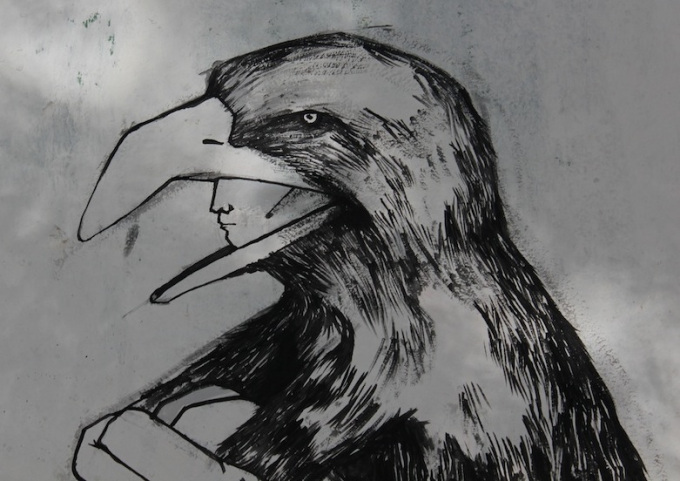
There’s a fundamental incongruency between being inflexibly pro ‘free speech’ and operating a global social network for civil public discussion. Twitter is struggling with it. Facebook is struggling with it, too. And it can’t be solved by a little more transparency or by hoping average citizens will do the right thing.
The principle of free speech on which the United States was founded was not conceived with our modern interconnectedness in mind, nor has it scaled to adapt to it. The idea was that anyone could say what they believed, and not be imprisoned for it. Not that everyone anywhere had to listen to it.
Shout in the streets, speak from a soapbox, ramble on the radio or trumpet on the television. Those who disagree with you or that you condemn still have the right to walk away or change the channel. But on today’s social networks, the harassers and trolls and extremists can come to you.
Permitting abuse under the guise of “free speech” actually dismantles free speech by allowing perpetrators to bully victims into silence until they retreat. From these apps. From their causes. From their beliefs.
Civil free speech is sacrificed in exchange for hatred, degradation and threats. Who can respectfully speak up for their convictions if they’re immediately shouted down? Women and people of color have been attacked this way for years and have been demanding change for years. It’s time for white men, who largely control these services and the traditional media, to stand by them as allies and actually take action. As a white male reporter, I’ve failed to do enough to force this issue.

The rules must change. The enforcement must become stricter and more consistent. But the operators of these new communication utilities must also uphold the spirit of free speech rather than the letter. That will require challenging, messy, expensive and inefficient solutions. In other words, human solutions.
Blanket fixes from blunt algorithms will not suffice. Empathy must go into creating new rules, reviewing reports and appeals, and building tools that extend our understanding of humanity rather than replace it.
Civility is a tightrope between chaos and censorship.
Sterility is not the solution. There are as many totalitarian dystopias as anarchic ones. Leaders of these social networks are right to be cautious about overstepping the bounds of safety into censorship. Twitter and Facebook should not become the truth police or the thought police.
But the current balance tips over toward chaos, a landscape ruled by strongmen and angry mobs. Instead of explicit top-down censorship we have implicit peer-to-peer censorship. Neither are truly free speech.

Practically, Twitter needs to change how replies work, as they are the primary vector of abuse. Abusers can @ reply you and show up in your notifications, even if you don’t follow them. If you block or mute them, they can create a new throwaway account and continue the abuse. If you block all notifications from people you don’t follow, you sever your connection to considerate discussion with strangers or potential friends — what was supposed to be a core value-add of these services.
A powerful way to prevent this @ reply abuse would be to prevent accounts that aren’t completely registered with a valid phone number, haven’t demonstrated enough rule-abiding behavior or have been reported for policy violations from having their replies appear in recipients’ notifications.
This would at least make it harder for harassers to continue their abuse, and to create new throwaway accounts that circumvent previous blocks and bans in order to spread hatred.

Facebook’s content moderation training manual explains that “white men” are protected from hate speech, but not “black children.” Image via ProPublica
Facebook needs to reassess its hate speech rules that allow some blatantly derogatory content to persist while censoring activists. According to Facebook’s content moderator training documents, “white men” are shielded from abusive statements because both words are “protected categories” of people, while “black children” aren’t, because age isn’t protected and invalidates protection of race. Seventy civil and racial justice groups have petitioned Facebook for change. Meanwhile, trolls have previously mass-reported profiles and Pages of activists in order to have them suspended.
Facebook’s color-blind and tone-deaf approach to content moderation must be overhauled to adopt an intersectional model shaped by more context of who is often victimized. Enforcement decisions need to be bubbled up to humans if automated systems can’t reliably identify what’s right.
Abuse on these platforms has run rampant for half a decade. Promises to crack down on it have been issued for almost as long. This week Twitter CEO Jack Dorsey again vowed to step up enforcement.
But social networks can’t hide harassment under the “free speech” label any longer. At a time when levelheaded discourse is more critical than ever to ensure healthy democracy, aggression can’t be allowed to trump integrity.
And social networks can’t go soft on harassment for fear of losing users. Short-term inflammatory engagement must not be prioritized over long-term inclusivity of all voices willing to participate in a civil online community. Only then will silence imposed through hostility be lifted.
Featured Image: Bryce Durbin/TechCrunch

